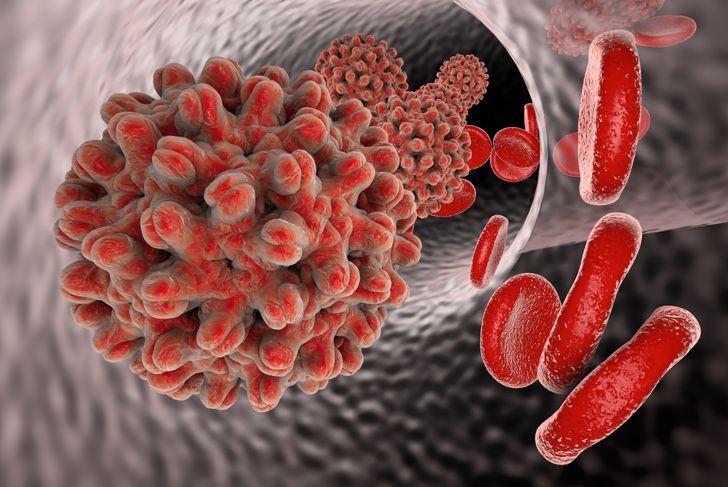Hepatitis B is caused by a virus. It is highly contagious and attacks the liver. Hepatitis A and B are very similar when it comes to symptoms. They are both acute and can last up to six months. However, hepatitis B can also become chronic. The incubation period for hepatitis B is longer as well. Although the infection can be spread in the same manner, the cause is different. Keep reading to learn more about hepatitis B along with its causes and treatments.
Symptoms of Hepatitis B
If you have been infected with the hepatitis B virus, you can experience symptoms anywhere from one to four months later. Even after the infection clears, you can still exhibit symptoms for up to two weeks. Symptoms of hepatitis B can range from mild to severe and may include fever, weakness, fatigue, and loss of appetite along with nausea and vomiting.
Symptoms (Cont.)
Another common sign of hepatitis B is joint pain or abdominal pain, especially on the upper right side underneath the ribs where the liver is located. Jaundice, which is characterized by yellowing of the skin and the whites of your eyes is another symptom of liver infection. However, some people, mostly young children, might experience any symptoms at all.
When to See a Doctor
You might already know you were exposed to the contagious virus, in which case you should contact the doctor immediately. You can take a preventive treatment within the first 24 hours of contact which might lower the chance of infection. If you are unsure of your condition, but experience any of the signs or symptoms previously mention then visit your doctor as soon as possible.
Causes of Hepatitis B
A virus known as HBV causes hepatitis B. It is very contagious, but not spread through coughing or sneezing. Rather, it is spread through blood, semen, or bodily fluids. Therefore, sexual contact with someone who has the virus whether it is via saliva, semen, or other secretions, can allow the virus to enter your body. A pregnant woman infected with HBV can also pass the virus onto her baby during childbirth.
Causes (Cont.)
Other causes of hepatitis B involve sharing needles. Using contaminated syringes can spread the infection whether it is through drug use or an accidental needle stick. Health care workers and others around blood have a higher risk of contracting the infection. It is essential to always use clean needles and never share them with anyone else.
Acute vs. Chronic Hepatitis B
There are two types of HBV. Acute is a short-lived version of the infection that lasts less than six months. On the other hand, a long-lasting condition is known as chronic hepatitis B. The infection is longer than six months and lingers. It can last a lifetime and lead to more serious liver illnesses. Infants or children under the age of five who get hepatitis B have a higher chance of developing chronic hepatitis B. It can even go undetected and undiagnosed for decades.
Diagnosis and Screening
Blood tests, ultrasounds, or biopsies may be performed to diagnose the virus. Even if you are not experiencing any symptoms of hepatitis B, your doctor may test to ensure you are healthy. Screening for healthy people is usually recommended for pregnant women, drug users, people with many sexual partners, and those with HIV. If you travel to certain areas of the world, you might want to be tested. People who receive kidney dialysis or take certain medications can also be screened for HBV.
Treatment for Hepatitis B
There is a vaccine for hepatitis B. However; if you were not vaccinated and know you were exposed to the virus, then you can get an injection of immunoglobulin, an antibody, within 12 hours of exposure. That way, you might not get sick with the infection. This treatment only helps for that one time, so you should consider getting vaccinated for long-term protection.
Treatment for Acute Hepatitis B
Short-lived hepatitis B should go away on its own within six months or less. You will not receive any specific treatment for the infection. However, you can make yourself more comfortable by getting extra rest, drinking more fluids, and eating proper nutrition so your body can fight off the virus. If you have severe symptoms or become dehydrated, you may need to stay in the hospital for a couple of days.
Treatment for Chronic Hepatitis B
If you are diagnosed with chronic HBV, then you will need lifelong treatment. That way, you can reduce the chance of developing liver disease and passing the virus to other people. Treatment may include antiviral medication, which is taken orally. Interferon injections are another option, which is used for children or pregnant women and are a man-made version of a substance naturally produced in the body to fight the virus. The last treatment for chronic hepatitis B is a liver transplant. This is only recommended if your liver is severely damaged.

 Home
Home Health
Health Diet & Nutrition
Diet & Nutrition Living Well
Living Well More
More




















